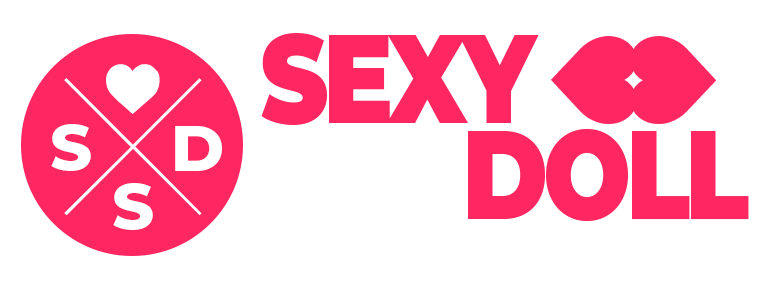Facebook’s “People You May Know” functionality endangers the anonymity of sex workers.
Sex workers work all the way to keep their true identities secret from their clients. However, Facebook’s “People You May Know” functionality has recently endangered a sex workers anonymity.
The technology advancement can make lives of sex workers miserable. The growth in facial recognition software and location sharing can reveal identities of a person that wish to keep their business identities hidden from their real lives. This may not seem to be a big deal for many of us. However, for sex workers, their personal recognition matters the most. It can bring a great deal of danger to their lives if their identities are revealed.
Importance of Anonymity for Sex Workers
Sex workers identity and their lives are always kept private and also to be kept separate. It can cause a virtual stroke if one’s private life is mixed with their business. The sex industry itself ensures their private lives are closeted.
A Recent Victim of Facebook’s “People You May Know”
One recent victim of the social network giant’s “People You May Know” function is a porn star from California. Her timeline function displayed suggestions of people from her personal life. It came as shocking as the porn star used two separate identities and had not let out any information about her personal life on the social platform. The sex worker used a different name, number, and email address for her business and has kept her real identity separate on the social network. Her professional identity is not on the social platform but still, when it shows the actual-world connection – it can be terrifying. This may be a serious issue as it can harm her personal image as well as put her life in danger.
Facebook’s Algorithm
In an interview with Gizmodo, a technology website, she said: “The worst nightmare of sex workers is to have your real name out there and Facebook connection people like this is the harbinger of that nightmare. With all the precautions w take and different phone numbers we use, why the f*** are they showing up?”
Additionally, she believes the social giant might have acquired information from different apps on her phone. Also, she doubts facebook’s location sharing algorithm that might have tracked data of her and her client’s session.
This means that Facebook’s algorithm thought the sex worker and the client had a social connection. Even though she left her sex-work life away from the social platform, it linked to her true identity somehow. This can lead to clients stalking or blackmailing sex workers. Also, with the revelation, people can track their families to cause additional harm to their lives.
Many of us use a social network such as Facebook and Twitter to showcase our business and personal lives. Contrary, workers from the sex industry put in all the effort to ensure their identity is never revealed.
Facebook’s Denial of Location Services Usage
Facebook has various technologies working on the backhand to provide its users a great experience. The “People You May Know” function can be very useful for someone that has a desire to grow their friend group and stay active on the social platform.
However, the same function can also harm individuals who wish to keep their individuality hidden. The error that Facebook has committed can spoil a person’s image. The social network giant uses facial recognition, tracks locations and also suggest friends of friends.
This isn’t the first controversy that Facebook’s feature has seen. In the past, identities of psychiatric patients were revealed to their distant relatives.
There is a possibility, in the case of the social worker from California, where Facebook’s location smart algorithm tracked the time period of the sex worker and the client which made it suggest them as friends. Facebook has a clever algorithm setup but it only works with the digital trails that one leaves behind. Hence, ultimately one can say the digital network is not as secure as we might think.
Facebook’s Safeguards for Privacy
Facebook is in denial that location services are used to suggest friends in the feature. The company stated, “We take privacy seriously and of course want to make sure people have a safe and positive experience on Facebook.” It then added “For people who choose to maintain a separate identity, we’ve put safeguards in place to help them understand their privacy choices. We fell short here and we will do better.”
Many privacy advocates state the feature “creepy”. They also say that Facebook’s database has information on over two billion people and owning personal facts can be damaging to privacy. Seeing it with a wider view, the big data might not have any feature that makes anonymity possible.
Hence, the digital world is not safe as one might think, even with all the security advancements. This gives a clear example of positive and negative effects of technology advancement.
But why don’t just buy a sex doll ?
The issue of privacy and data protection is a complex one that applies to many industries and sectors, including sex work. Whether or not sex dolls are a “better” solution than sex workers in terms of privacy depends on several factors.
It’s true that algorithms and data analysis can reveal sensitive information, including the identity of sex workers. This can lead to numerous problems, including online harassment, discrimination, and stigma.
Comparing sex dolls and sex workers
Comparing sex dolls and sex workers is not a straightforward task, as they cater to different needs and desires. Both have their own benefits and drawbacks.
Using sex dolls can have certain advantages, such as reducing the spread of sexually transmitted diseases and the potential for violence associated with commercial sex work. Additionally, some people may prefer the anonymity and lack of emotional involvement that comes with using a sex doll.
However, there are also many arguments against the use of sex dolls. For example, some people argue that the use of sex dolls perpetuates objectification and reinforces harmful gender stereotypes. Additionally, there are ethical concerns about the manufacture and disposal of these products.
On the other hand, legalizing and regulating commercial sex work can have numerous benefits for society, including improved working conditions for sex workers, reduced stigma and discrimination, and increased access to health services and legal protections. Moreover, sex work can provide a valuable source of income for those who choose to engage in it.
In conclusion, both sex dolls and sex work have their own unique benefits and drawbacks, and the best approach may vary depending on individual and societal circumstances and values.










